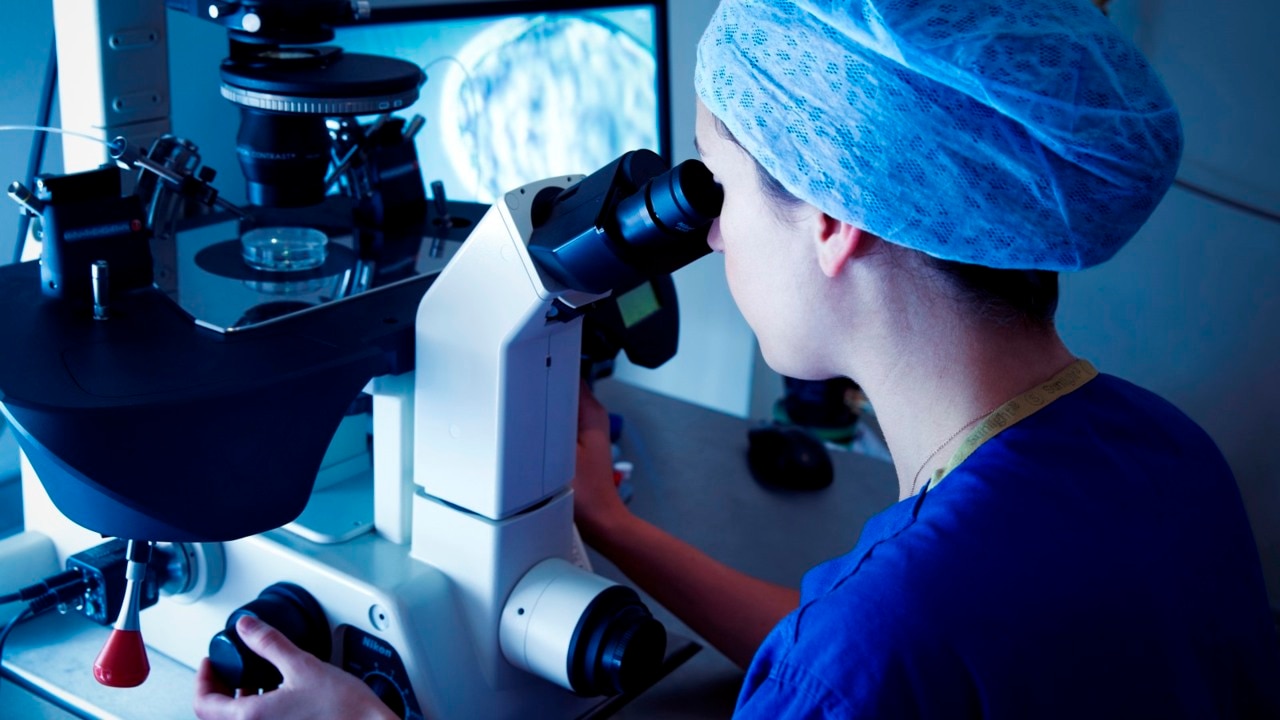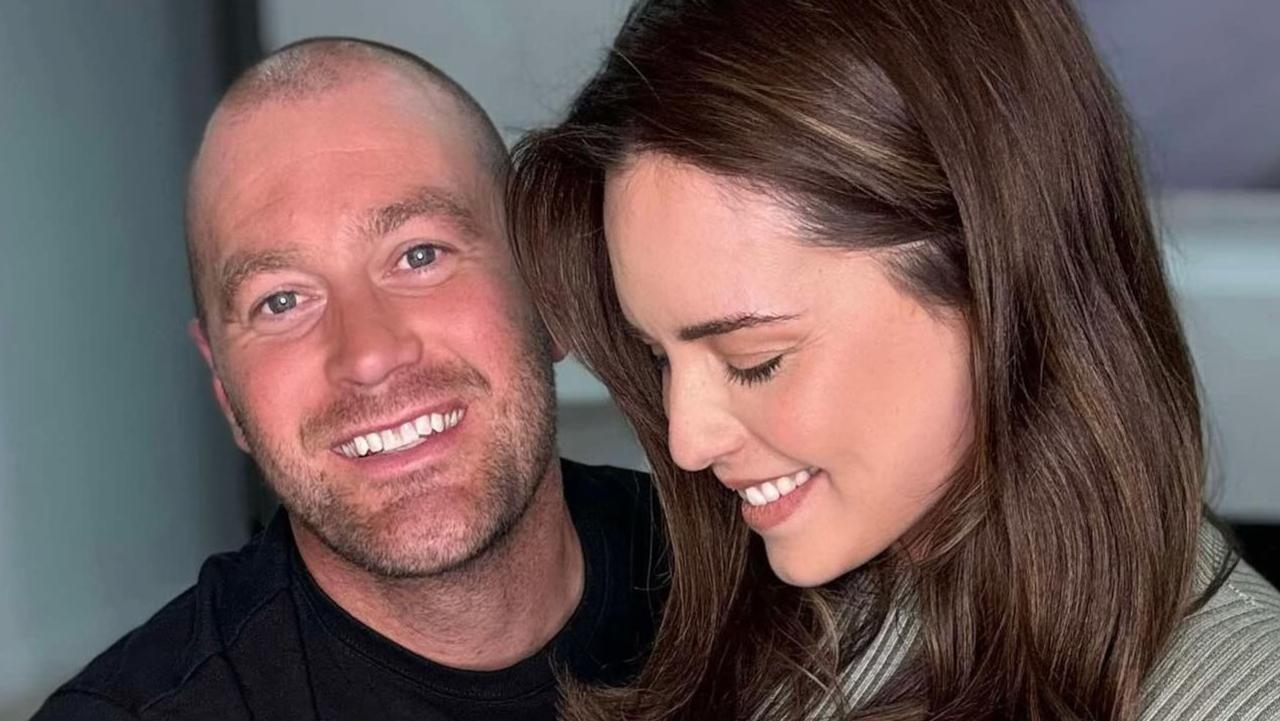Experts warn against murky world of private sperm donation in Australia
A man has lifted the lid on the world of private sperm donations, including how the man, once dubbed Australia’s most prolific donor, would “boast” online

Pregnancy
Don't miss out on the headlines from Pregnancy. Followed categories will be added to My News.
Each year hundreds of Australian children are born through sperm donation, but strict regulations and costly medical processes are seeing an increasing number of women moving away from regulated clinics and into the murky world of private donation.
Private sperm donation Facebook groups, where potential donors and recipients can connect without having to go through a fertility clinic, have grown in popularity in recent years.
However, experts have warned the unregulated nature of these groups could potentially have devastating impacts on both donors and recipients, with one former group member lifting the lid on how these sperm donation pages work.
One of the issues with these private pages is there is no way to ensure whether donors are adhering to Australia’s sperm donor limits.
Under the law, a sperm donor is able to donate to up to 10 women in Victoria and South Australia.
In NSW and Western Australia these laws are even more strict, with donors only allowed to create a maximum of five families.
Other states and territories don’t have specific laws around donor limits, though many fertility clinics implement their own limits for donors.

These limits are in place to reduce the risk of donor conceived children from having multiple siblings they are unaware of, which could possibly cause issues later in life.
Last year a man touted as the unofficial most prolific sperm donor in Australia was, at one time, being investigated by the Victorian Assisted Reproductive Treatment Authority (VARTA).
Alan Phan, who has two children of his own, was providing sperm both privately and through registered clinics. He reportedly fathered 23 children in one year.
At the time, the now-former VARTA Chief Executive Officer, Louise Johnson, was quoted by Daily Mail Australia saying that the investigation into Mr Phan meant that one patient at one of the facilities had been barred from using her embryos created with the Brisbane man’s sperm, causing her immense distress.
Ms Johnson said it was “incredibly sad and naive” of Mr Phan to continue to donate his sperm.
When asked recently whether the investigation was still ongoing, VARTA told news.com.au it wouldn’t be commenting further to protect the privacy of those involved.
News.com.au also contacted Mr Phan but did not receive a response.
A man who was a part of two of the same sperm donation Facebook groups as Mr Phan told news.com.au the Brisbane man was a very active member.

Daniel*, who did not want to be named, claimed Mr Phan often spoke about the large number of families he had donated to.
“Alan was in both groups where he posted a very, very large number of posts offering his services. He was boasting about how he was donating to dozens of people,” he said.
“He also mentioned that he had a Facebook group where the families he had donated to could connect with each other.”
Daniel said when he tried to raise his concerns about one person donating so much he was aggressively shut down by other members.
He said since new donor laws were introduced in 2005 removing a sperm donor’s ability to remain anonymous, there has been an increase in demand for willing donors.
“There are a lot of desperate women wanting to have kids. Going through the official channels can be incredibly expensive and time consuming,” Daniel said.
“When there is someone like Alan who is happy to donate to so many people, others sort of defend him because there are not many donors around due to the new laws.
“He is a resource they want to keep going and so they turn a blind eye to how many people he is donating to.”
Daniel added: “Because he had done it so many times he became a bit of a celebrity and I think he probably enjoyed that.”
One of the most popular groups, Sperm Donation Australia, has more than 10,000 members.
In the group, willing donors will make a post usually providing a photo, short description of themselves, their health history and preferred method of donation. Those looking for donors can then signal their interest or ask for further information.

Women also post in the group looking for donors in particular parts of the country who meet specific criteria.
While this group is often flooded with success stories, experts have warned of the dangers associated with fast-tracking the donor process by avoiding fertility clinics.
Kate Wilford, Manager Donor and Surrogacy at City Fertility, told news.com.au that when new donors come to their facility they are asked if they have donated to another clinic or elsewhere.
“However, there is currently no independent national online Australian donor register to see if a donor has donated elsewhere. A registry of this type would be useful for clinics to reduce the sperm donors from potentially dishonestly donating both in a clinic and on forums,” she said.
“Currently the only states that hold a central register are NSW and Victoria (VARTA).
“City Fertility and Sperm Donors Australia have zero tolerance for unethical donor behaviour.
We desire nothing more than safe, healthy and happy pregnancies for all referred patients and take this matter of donor limits very seriously.”
VARTA CEO Anna MacLeod told news.com.au using a donation facility provides women with extra protections they may not receive with private donations.
“While VARTA does not regulate sperm donation occurring outside of fertility treatment clinics, we are concerned about the risks that unregulated donation poses to people. These risks include the potential to pass on infectious diseases such as HIV to a woman and her baby, and sexual harassment and assault,” Ms MacLeod said.
“There have been anecdotal reports of donors initially agreeing to artificial insemination, but then insisting on sex.”
Donors who donate to a clinic must undergo blood tests, complete a genetic health questionnaire and have counselling to explore the implications of donating.
There is also the risk that people donating through private channels might not provide their true personal details in order for the child to contact them in the future.
Ms MacLeod said women thinking of using private donation may also encounter issues with claims to parentage.
“A woman who engages an unregistered donor may have limited rights if that donor later decides they want to be a father figure to the child,” she said.
“It is worth women knowing that if they have sex with a ‘donor’, that man can claim to be a father to the child. Whereas a woman who engages a donor through a fertility treatment clinic has rights regarding contact with the donor under Victorian law.
“A donor could also be potentially vulnerable to claims for maintenance or claims to his estate if he donates informally.”
* Name changed for privacy reasons.
Originally published as Experts warn against murky world of private sperm donation in Australia



